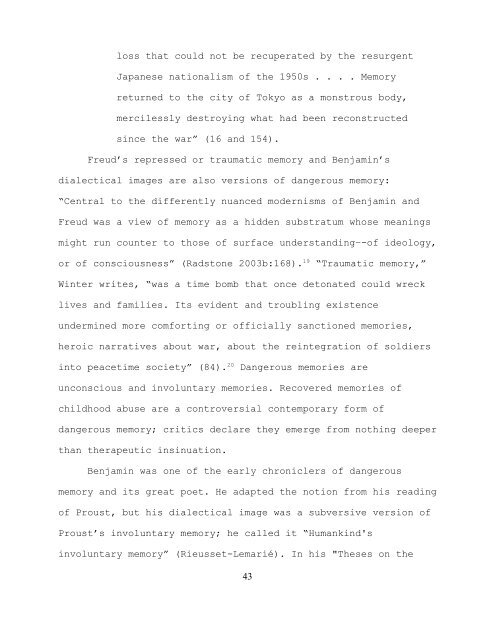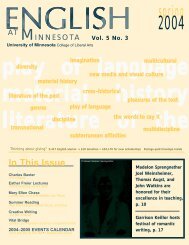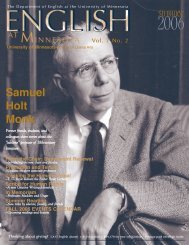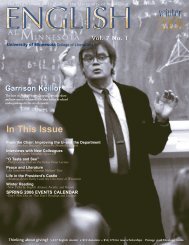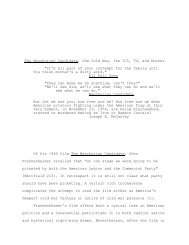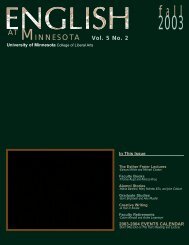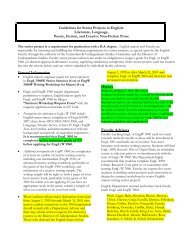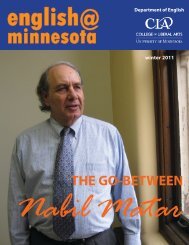Screen Memory - Department of English
Screen Memory - Department of English
Screen Memory - Department of English
You also want an ePaper? Increase the reach of your titles
YUMPU automatically turns print PDFs into web optimized ePapers that Google loves.
loss that could not be recuperated by the resurgent<br />
Japanese nationalism <strong>of</strong> the 1950s . . . . <strong>Memory</strong><br />
returned to the city <strong>of</strong> Tokyo as a monstrous body,<br />
mercilessly destroying what had been reconstructed<br />
since the war” (16 and 154).<br />
Freud’s repressed or traumatic memory and Benjamin’s<br />
dialectical images are also versions <strong>of</strong> dangerous memory:<br />
“Central to the differently nuanced modernisms <strong>of</strong> Benjamin and<br />
Freud was a view <strong>of</strong> memory as a hidden substratum whose meanings<br />
might run counter to those <strong>of</strong> surface understanding–-<strong>of</strong> ideology,<br />
19<br />
or <strong>of</strong> consciousness” (Radstone 2003b:168). “Traumatic memory,”<br />
Winter writes, “was a time bomb that once detonated could wreck<br />
lives and families. Its evident and troubling existence<br />
undermined more comforting or <strong>of</strong>ficially sanctioned memories,<br />
heroic narratives about war, about the reintegration <strong>of</strong> soldiers<br />
20<br />
into peacetime society” (84). Dangerous memories are<br />
unconscious and involuntary memories. Recovered memories <strong>of</strong><br />
childhood abuse are a controversial contemporary form <strong>of</strong><br />
dangerous memory; critics declare they emerge from nothing deeper<br />
than therapeutic insinuation.<br />
Benjamin was one <strong>of</strong> the early chroniclers <strong>of</strong> dangerous<br />
memory and its great poet. He adapted the notion from his reading<br />
<strong>of</strong> Proust, but his dialectical image was a subversive version <strong>of</strong><br />
Proust’s involuntary memory; he called it “Humankind's<br />
involuntary memory” (Rieusset-Lemarié). In his "Theses on the<br />
43


